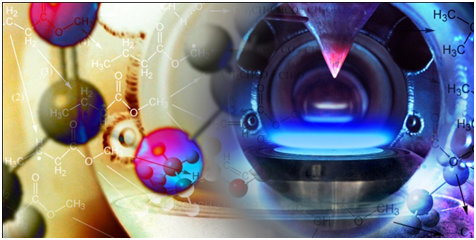Large Eddy Simulation (LES) of Engines
Large Eddy Simulation Applied to Advanced Engine Combustion Research
 The combination of High Performance Computing (HPC) and the Large Eddy Simulation (LES) technique has significant potential to provide new insights into the dynamics of IC-engine flow processes. At the CRF, we integrate the combined merits of HPC and LES in a manner that provides some of the highest-fidelity, most detailed calculations ever performed to investigate turbulent reacting flow processes in IC-engines. Our core application activities in this area are funded by the DOE Office of Energy Efficiency and Renewable Energy (EERE), Vehicle Technologies Program. The LES application efforts build on our fundamental LES development activities supported by the DOE Office of Basic Energy Sciences.
The combination of High Performance Computing (HPC) and the Large Eddy Simulation (LES) technique has significant potential to provide new insights into the dynamics of IC-engine flow processes. At the CRF, we integrate the combined merits of HPC and LES in a manner that provides some of the highest-fidelity, most detailed calculations ever performed to investigate turbulent reacting flow processes in IC-engines. Our core application activities in this area are funded by the DOE Office of Energy Efficiency and Renewable Energy (EERE), Vehicle Technologies Program. The LES application efforts build on our fundamental LES development activities supported by the DOE Office of Basic Energy Sciences.

The primary objective of our application activites is to establish high-fidelity computational benchmarks that match the geometry and operating conditions of key target experiments using a single unified theoretical-numerical framework. Our unique linkage with both EERE and the DOE Office of Science has enabled the development of formal collaborations with the National Center for Computational Sciences at Oak Ridge National Laboratories (ORNL) under the DOE Innovative and Novel Computational Impact on Theory and Experiment (INCITE) program. These collaborations have led to unprecedented amounts of CPU allocations on the ORNL CRAY XT systems (i.e., jaguar). Using a combination of local mid-scale computer clusters and leadership platforms such as those at ORNL, we combine LES with key experimental efforts. A scientific foundation for development of advanced subgrid-scale models for combustion has been established as a direct extension of the “International Workshop on Measurement and Computation of Turbulent Nonpremixed Flames” (i.e., the “TNF Workshop”). Similarly, we have established collaborative research activities that focus on key IC-engine related experiments that are part of the Engine Combustion Network (ECN). The ECN workshop has analogous objectives to those of the TNF workshop but with emphasis on engine combustion processes. Example studies include “LES of Direct Injection Processes for High-Pressure, Low-Temperature Engine Applications with emphasis on Hydrocarbon Fuels,” and “LES of the CRF Homogeneous-Charge Compression-Ignition (HCCI) Engine.














